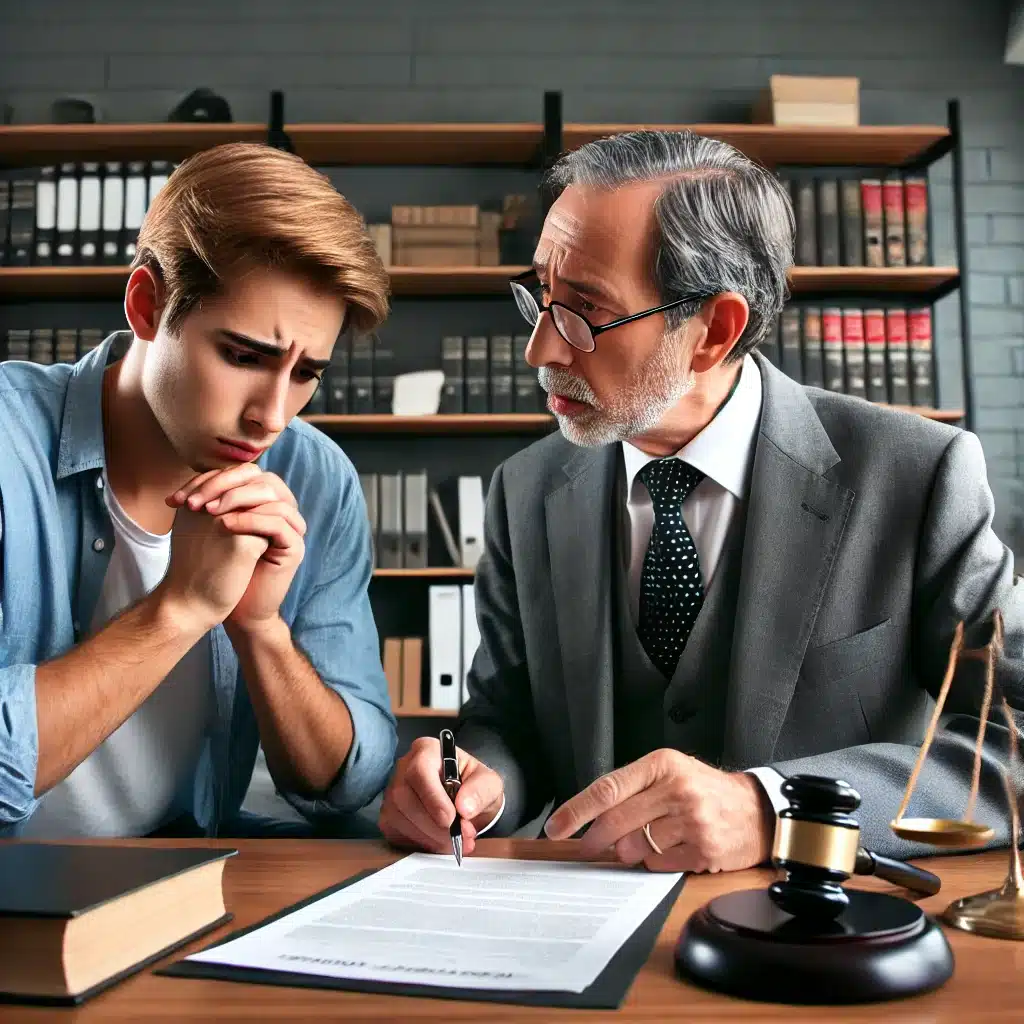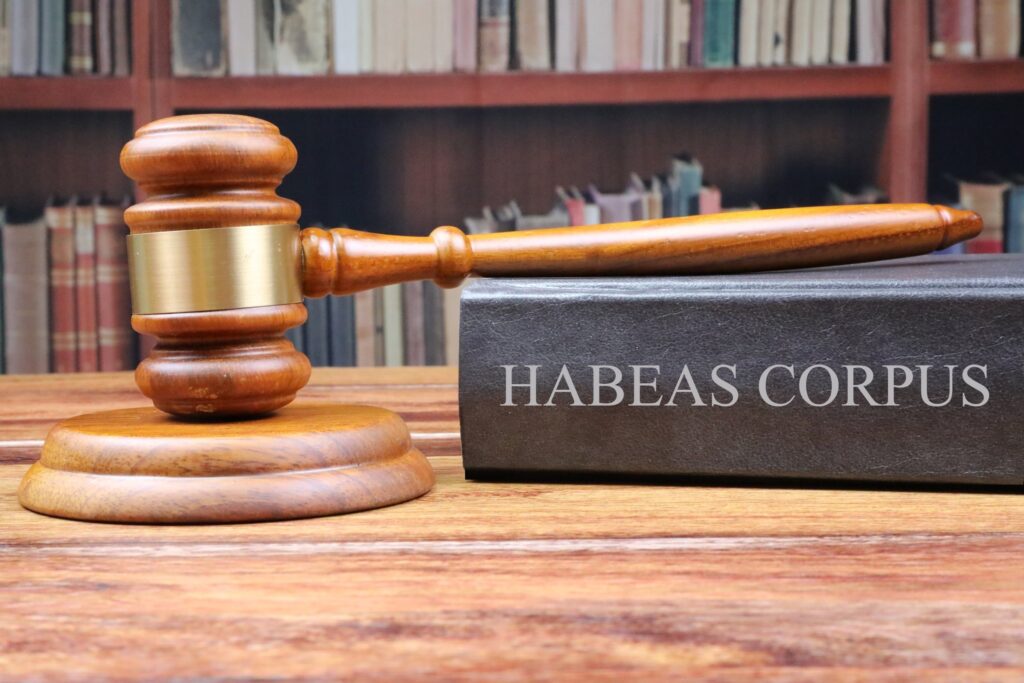Understanding the Role of a Post-Conviction Lawyer in Looking For Justice After a Criminal Sentence
In the complicated landscape of post-conviction legal process, the role of a post-conviction legal representative is critical in browsing the path to justice after a criminal sentence - oklahoma federal habeas corpus lawyers. As the search of justice prolongs past the boundaries of initial proceedings, the function of a post-conviction attorney emerges as a beacon of hope for those seeking to correct oppressions and recover their legal rights within the legal system.
Post-Conviction Legal representative's Investigative Job
Post-conviction attorneys participate in precise investigative job to discover brand-new proof, procedural mistakes, or misbehavior that could possibly cause reversing a conviction. This investigatory phase is crucial in the post-conviction procedure as it aims to recognize any kind of neglected information or legal bad moves that may have impacted the result of the initial test. Post-conviction attorneys explore instance data, witness testimonies, and lawful documentation with a fine-tooth comb, looking for any disparities or irregularities that can be grounds for charm.
Through detailed investigation, post-conviction lawyers aim to drop light on possible oppressions that may have occurred during the original trial. By inspecting every facet of the lawful proceedings, post-conviction attorneys work tirelessly to discover any type of variables that might have affected the judgment.
Crafting Appeals and Petitions
In the pursuit of justice after a conviction, competent attorneys diligently craft allures and applications to existing compelling arguments for the reconsideration of legal choices. Crafting allures and applications calls for a deep understanding of the lawful system, focus to information, and critical reasoning. Post-conviction legal representatives assess test documents, determine prospective mistakes or offenses of civil liberties, and create lawful debates to test the conviction or sentence.
When crafting a charm, lawyers focus on highlighting lawful mistakes that might have impacted the outcome of the case. They research instance legislation, statutes, and legal criteria to sustain their disagreements. Petitions, on the other hand, might entail providing new proof that was not readily available throughout the trial or showing adjustments in the legislation that require a review of the sentence.
Additionally, post-conviction attorneys should stick to stringent procedural rules and target dates when filing appeals and applications. They need to present their debates clearly and persuasively to convince the court to provide alleviation to their customers. Via careful crafting of appeals and applications, post-conviction attorneys strive to safeguard justice for individuals that have been wrongfully founded guilty or unfairly punished.

Going After Post-Conviction Relief
Post-conviction relief encompasses an array of legal mechanisms made to test the validity of a sentence or sentence. Post-conviction attorneys play an important role in browsing these complicated procedures, making certain that all legal options are discovered to remedy injustices that might have happened throughout the trial or sentencing stage.
One usual kind of post-conviction relief is submitting a request for post-conviction alleviation, normally based on claims of ineffective help of advise, prosecutorial misbehavior, recently found evidence, or constitutional violations. Experienced post-conviction legal representatives have the skills and expertise essential to determine viable legal insurance claims, conduct investigations, and existing engaging disagreements to safeguard relief for their customers.
Utilizing Forensic Proof
When testing a conviction or sentence, the critical use of forensic evidence can be an effective device in post-conviction legal process. Forensic evidence incorporates a vast array of clinical strategies used to examine crimes and develop truths in court. Post-conviction attorneys can utilize forensic evidence to challenge the credibility of convictions by presenting brand-new scientific findings that were not available throughout the initial test.

Involving in Sentence Adjustments
Post-conviction attorneys may check out the opportunity of sentence alterations as a legal avenue to resolve out of proportion or unjustified sentences passed on in criminal instances. Sentence alterations involve seeking adjustments to the terms of a defendant's sentence after a conviction has actually happened. These adjustments can consist of decreasing the length of a sentence, altering the kind of penalty imposed, or checking out alternate sentencing choices.
Post-conviction legal representatives can pursue sentence adjustments with various lawful devices, such as filing activities for sentence reduction, appealing for compassionate release, or negotiating appeal deals for reduced sentences. They must thoroughly evaluate the circumstances of the instance, evaluate the legal premises for looking for an adjustment, and present engaging debates to the court supporting the need for a modified sentence.
Engaging in sentence alterations needs a complete understanding of criminal regulation, sentencing standards, and the details treatments associated with looking for post-conviction alleviation. Post-conviction legal representatives play an essential duty in supporting for reasonable and just end results by challenging sentences that are unduly rough or do not align with the concepts of justice.
Final Thought
In verdict, the role of a post-conviction lawyer is essential in seeking justice after a criminal sentence. Via special info investigatory job, crafting allures and requests, pursuing post-conviction alleviation, using forensic proof, and participating in sentence modifications, these lawful experts play a crucial function in supporting for their clients and making certain that their legal rights are supported within the criminal justice system. Their devotion and knowledge are important in navigating the intricacies of post-conviction process and achieving a fair outcome for individuals encountering criminal convictions.